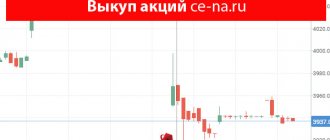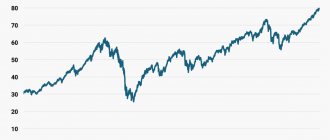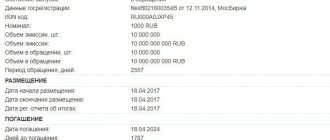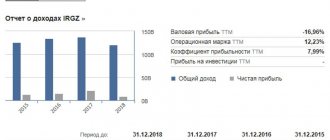I welcome everyone who is interested in the trading world or simply the domestic auto industry. In 2021, AvtoVAZ will completely come under the control of the Rostec Alliance.
The Franco-Japanese concern, which manages Renault, Nissan and Mitsubishi, has long owned AvtoVAZ. The Alliance announced that it was striving for sole management, and after several offers it actually became the sole owner, using a forced buyout for AvtoVAZ shares.
Let's figure out what lies behind these words and how legal the appropriation of someone else's property is in our country today.
What happened to AvtoVAZ shares
All, or almost all, private minority shareholders received a letter notifying them that they are no longer members of the PJSC, the securities were bought by the main holder, and the sale has already taken place.
Nobody asked the consent of the former shareholders; people were simply presented with a fact. The situation looks very ambiguous - after all, the owner has the right to dispose of his property as he wants, but the papers have already changed the owner, and the money for them has been transferred to the account.
Thus, the Renault Nissan alliance exercised its right enshrined in Article 84 of the Federal Law on Joint Stock Companies. The law allows for unilateral buyout transactions to be carried out by a holder owning more than 95% of the shares.
The arbitrariness of AvtoVAZ owners
The company Alliance Rostec Auto BV is buying back the last shares they owned from VAZ. Moreover, the word “buys back” just begs to be put in quotation marks: the operation is carried out forcibly, regardless of the consent or disagreement of the former owners of “pieces of the native plant.”
Antisocial policy of the auto giant's owners
The departmental newspaper “Volzhsky Avtostroitel” reports dryly and officially: “(Alliance Rostec Auto BV, a joint venture of Renault and the Rostec state corporation) acquired more than 95% of the shares of AvtoVAZ from shareholders and, in this regard, on the basis of the Federal Law “On Joint Stock Companies” received the right to compulsorily repurchase shares belonging to them from minority shareholders. The law provides that forced repurchase of shares can be carried out without the consent of minority shareholders.”
The reaction of the now former shareholders is not difficult to predict. They are sure that another state-sanctioned and legally formalized robbery is taking place. Yes, the money will be paid someday (by the way, when?). But people are accustomed to considering these shares to be the “last moneymaker” (they even sometimes counted on dividends). Now all that remains is to spend this money or watch as inflation wears it away.
And here's another problem. All applications for the “sale” of shares are registered by only one (!) notary in the entire city, while there are more than 100,000 share owners. It’s scary to imagine how many years the queue will last. And those who quit and left the city? Even if they are notified, they will either have to go to Tolyatti or experience all the joys of “business correspondence.”
The Communist Party faction in the Tolyatti City Duma could not ignore this blatant disgrace. A letter was prepared and sent to the government of the Russian Federation, the State Duma of the Russian Federation and the governor of the Samara region.
At the same time, at a meeting of the Togliatti city parliament, deputy of the Samara Provincial Duma, communist Alexei Krasnov, made a statement:
“The policy of the owners of PJSC AvtoVAZ is becoming more and more antisocial. Especially if you analyze it over the last three or four years... This includes the introduction of a completely antisocial policy of absenteeism at the Volzhsky Automobile Plant, when people who are sick or pregnant women do not receive bonuses based on the results of the enterprise’s activities. This is Ms. Matushkova’s document that is simply stunning in its cynicism (I mean the charter on corporate ethics, which the Tolyatti prosecutor’s office later demanded to cancel after our request), this is the mass layoffs of workers with a colossal number of lawsuits in 2021, and so on, and so on. "
The deputy considered it possible to contrast the social policy of the current owners of the Volga auto giant with trends that have been widespread in the capitalist world for half a century. He recalled the course to create “people's capitalism” that was born overseas:
“For example, in the 60s of the last century in the United States, a government program for allocating shares to employees was developed. The US Senate Finance Committee launched this plan, and already in 1974 there were 12,000 companies listed as enterprises where their employees are shareholders. Including transnational ones. The American government even decided to provide tax benefits to business owners who transfer part of their shares to their employees. In addition, the state obliged banking institutions to subsidize by half the rates on loans attracted by these enterprises.
This was undoubtedly an integral part of the global class struggle: the US bourgeoisie was ready to share the crumbs from the master's table with hired workers, thanks to whose exploitation it received super-profits. This policy was an integral part of measures aimed at economic opposition to the successes of the USSR. And although today there is no longer a confrontation between two socio-economic systems in the world, the practice of distributing shares among enterprise employees is still widely preserved. Similar government programs are implemented in 70 countries and are promoted as a cooperative sector in the world of capitalist economies. Bourgeois scientists claim that he has become one of the most influential economic forces on the planet. It unites over a billion people, and the turnover of the 300 largest such organizations is two and a half trillion dollars a year. Thus, in the “citadel of world capitalism” - the USA - 14,000,000 workers are employed in “collective labor” enterprises. The ranking of the 100 best companies in the United States consists of more than half of the companies in which workers participate in the capital. To save time, I simply cannot read out this entire huge list of flagships of the European, American and Asian economies here.
In Singapore, 100% of businesses are structured in such a way that part of their shares are owned by employees. The same trend is seen in Japan, Sweden, Denmark, and New Zealand.
Widely promoted economic theories are devoted to promoting the effectiveness of this approach. They are so popular in the capitalist world that in 2009, American economists Elinor Ostrom from Indiana University and Oliver Williamson from the University of California even received a Nobel Prize for their desire to prove the effectiveness of employee management of collective property.” (Nobel Prizes in economics are almost always awarded for work aimed at defending capitalism. - Ed.)
Deputy of the Samara Provincial Duma Alexey Krasnov called on the deputies of the Tolyatti City Duma to support the appeal of the Communist Party of the Russian Federation faction, which protested against the policy of the owners of AvtoVAZ PJSC, since it is anti-social in nature and directed against the interests of ordinary citizens of Tolyatti.
Against forced repurchase
Deputies of the Communist Party faction of the Togliatti City Duma sent a statement regarding the situation of forced buyout of shares by the owners of PJSC AvtoVAZ to the First Deputy Chairman of the Government - Minister of Finance of the Russian Federation A.G. Siluanov, Chairman of the State Duma of the Russian Federation V.V. Volodin and Governor of the Samara Region D.I. Azarov. It says:
“The city of Togliatti is a single-industry town and was created with an eye specifically on the automotive industry. More than 70% of the city’s population was employed in the production facilities of PJSC AvtoVAZ or its subsidiaries. In the 1990s, when privatization took place, the company's employees were given shares, which many, now VAZ veterans, still have. These shares represent not only a certain capital and property of the plant workers, but are also a symbol of their labor feat, gratitude for many years of hard work for the benefit of the plant, the city, and the Fatherland.
However, now there is a forced buyout of shares from members of the workforce and veterans of PJSC AvtoVAZ by the owners of the enterprise, which causes indignation among the townspeople, where social tension is already high.
The initiator of the forced repurchase of AvtoVAZ shares is the Allians Rostec Auto company (registered in Amsterdam).
According to preliminary estimates, the situation with the redemption of shares affected about 140 thousand citizens. At the same time, people are faced with the obligation (without the right to choose) to surrender their shares. We consider this situation unacceptable from a moral and ethical point of view and incorrect from the point of view of public policy for the following reasons:
Based on the results of 2021, shareholders may be paid dividends, since... debt obligations of the joint-stock company are permitted. However, such payments have not been made to shareholders since 2004. As a result, veterans and other shareholders of AvtoVAZ PJSC are not only deprived of shares, but also the opportunity to receive dividends in the future.
The once state-owned strategic enterprise, which was transferred to the plant staff following privatization, is now leaving state control and entering private hands.
We believe that government agencies do not pay due attention to this situation, which makes it dangerous, since it damages the security of the entire country and ignores the interests of the enterprise’s workforce and residents of Tolyatti.
We ask you to take all comprehensive legislative, administrative, political and other measures to suspend the procedure for forced repurchase of shares.”
FROM THE EDITOR
Pravda strongly supports the indignation of current AvtoVAZ employees and its veterans against the expropriation of shares carried out by the owners of the plant, which they received in accordance with Russian legislation in force in the 1990s. Moreover, the state claimed: these actions are recognition of their contribution to the creation and development of the auto giant. The actions of the company registered in the Netherlands are nothing more than outright racketeering committed against tens of thousands of Russian citizens. The editors will monitor the reaction of the Russian government to the appeal of Tolyatti deputies and inform readers about the actions of the executive branch.
At the same time, Pravda considers it necessary to remind its readers, including the communists of the Samara region, that it is deeply mistaken to idealize the sale of a small share of shares to employees of enterprises. This foreign theory and practice was intended to use the proprietary sentiments of some workers to smooth out the contradictions between labor and capital, to cosmetically embellish capitalism. It is no coincidence that this ideological attack of capital on the interests of the working class immediately received the name of the notorious “people's capitalism.” Thus, both abroad and in Soviet reference publications, capitalist enterprises were defined in which workers are also minority shareholders. The theorist of “popular capitalism” was the American bourgeois economist Louis Kelso.
The international meeting of communist and workers' parties, held in June 1969, in its final document, in particular, indicated:
“The monopoly bourgeoisie is trying everywhere to spread the illusion that everything that the working people strive for can be achieved without a revolutionary transformation of the existing system. In order to cover up its exploitative aggressive essence, capitalism resorts to various apologetic concepts (“people's capitalism”, “welfare state”, “affluent society”, etc.). The revolutionary workers' movement exposes these false concepts and wages a decisive struggle against them."
It seems that there are no grounds for revising the documents of the international communist movement. As for Russian capitalism, it most fully demonstrates the vileness of a life structure based on the omnipotence of private property. That is why in the Program of our party it is written: “The Communist Party of the Russian Federation is convinced that the salvation of the Fatherland lies only in the revival of the Soviet system and following the path of socialism.” Therefore, the main document of the Communist Party of the Russian Federation demands “to wage an uncompromising struggle against the restoration of capitalism, the destruction of Soviet power and the destruction of the Soviet Union.”
Voluntary repurchase of securities from AvtoVAZ shareholders
The Renault-Nissan alliance announced its plans to delist securities and its goals of becoming 100% owner of the AvtoVAZ concern back in 2018. To this end, Rostec announced an offer and continued to increase its portfolio. As a result, Alliance Rostec Auto BV became the owner of 96% of the securities in September 2018.
Having such a large share, Rostec had the opportunity to buy out the remaining securities unilaterally.
Can they force me to sell AvtoVAZ shares?
Yes, and you won’t be able to set the price either. According to our laws, the price is determined by an independent appraiser: neither the seller nor the buyer can influence it.
Frankly speaking, the concept of forced redemption does not imply the participation of the seller, the transaction is actually one-sided, so the word forced is not very appropriate here.
How will the remaining minority shareholders buy back shares?
The repurchase procedure involves an offer of voluntary sale and a subsequent demand for compulsory repurchase. In response to the letter, the former owner must send information about his bank account, where the money for the sold shares is transferred.
If the minority shareholder does not respond, and the company does not have his bank details at its disposal, the buyer simply transfers the money to the notary, from which point the procedure is considered completed.
This means that you can only receive your money from a notary working at the place of registration of the company, that is, in Tolyatti. You can send your details with a request for translation to a notary by mail.
How much does it cost to buy back shares?
The cost of one PJSC share for this transaction was 12.4 rubles for ordinary and 12.2 for preferred. The figure is small, but over the past six months, AvtoVAZ shares have been even cheaper, so this cannot be called the minimum price.
Is there a tax on forced repurchase of AvtoVAZ shares?
Yes, income from the sale of shares, like any other income, is subject to personal income tax. PJSC AvtoVAZ, acting as the buyer, is not a tax agent. The format of the transaction in a specific situation does not matter.
You can reduce your tax amount by applying a tax deduction. To do this, you need to indicate the money spent on the purchase of the share and register their funds spent on generating income, that is, the current profit.
Buyback reviews
The majority of AvtoVAZ's former shareholders reacted negatively to the news of the sale. Many had owned the shares for several years and were seriously counting on some kind of dividends; others bought the shares, clearly seeing the company's recent progress.
Many perceived the notification letter as an attempt at fraud or simply did not know what to do next to receive their money. For obvious reasons, the telephone number indicated in the letter was constantly busy, and not everyone had the opportunity to come to the notary’s office in person.
The owners of electronic shares had more clarity about what was happening; the sale process took place instantly, with the next closure of the exchange, the money was immediately deposited into the account.
The price of the shares also caused a storm of criticism; the former minority shareholders were not satisfied with the listed 12 rubles, and there was and will not be an opportunity to set their own price.
AvtoVAZ sent a notice of forced repurchase of shares from minority shareholders
For the first time in nine years, AvtoVAZ is paying shareholders 48 rubles in dividends per share. True, not everyone. The main holders of shares will earn much more from rising prices than from dividends, reports Gazeta.Ru.
AvtoVAZ first talked about dividends at the end of last year. It was then that the plant’s management began to hint that this year’s net profit would not be written off as accounts receivable, but would be used to pay dividends. This will happen for the first time in nine years. According to VAZ executives, we should talk about “a radical change in strategy. True, as it became known today, money will be given to very few and a small amount.
The Board of Directors recommended that the annual meeting of shareholders pay dividends on preferred shares in the amount of 47 rubles 58 kopecks. However, not everyone will receive this money: AvtoVAZ has decided to pay money only to holders of preferred shares.
The authorized capital of AvtoVAZ JSC is 32,094,964 shares. About 5 million of them are privileged. This is the name for shares that primarily pay interest and do not carry voting rights. At the beginning of its transformation into an OJSC, VAZ sold such shares to workers. Now each of them will receive 47 rubles 58 kopecks per share. Total – 234.7 million rubles.
Large shareholders who own “voting shares” will not receive dividends. They make money on something else. Since the middle of last year, there has been a rapid increase in the value of VAZ securities. Common shares, which cost $19 at the end of 2001, rose to $26 by early February. At the last trading, ordinary shares already cost $34.9, 500 rubles more than in December. Privileged – $18.5.
The press discussed rumors that the rise in share prices was being provoked by the company's management itself, which was buying up securities. VAZ management denied the rumors and reported new successes, thereby provoking an increase in the value of securities. Now financial market experts are skeptical. They claim that there is a slowdown in the growth of VAZ shares.
As investment specialists said, “shares have slowed down their growth.” Over the past month, AvtoVAZ shares grew only 4%. However, the trend for ordinary AvtoVAZ shares remains upward. In our opinion, the lower dividends are associated with some corporate governance issues. Apparently, management is not yet going to bind existing shareholders to itself with high dividends. At this rate, Kadannikov’s promised $50 per share by the end of the year seems unrealistic.”
Most recently, AvtoVAZ announced that it was becoming a full-fledged player in the stock market and would begin to devote time to its securities. At the same time, the plant’s management never reported who exactly owned the main blocks of securities. Although rumors persistently point to the entire major management of the enterprise.
According to analysts, VAZ management will now have to realize that further growth in shares, necessary for the development of projects to update the model range, can no longer be ensured by stories about future “miracle cars” and promises of huge dividends.










